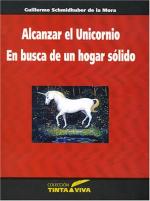|
This section contains 5,994 words (approx. 20 pages at 300 words per page) |

|
SOURCE: “Arreola's ‘The Switchman’—The Train and the Desert Experience,” in Confluencia: Revista Hispanica de Cultura y Literatura, Vol. 3, No. 1, Fall, 1987, pp. 85-94.
In the following essay, Knapp discusses concepts of time, reality, and man's futile attempt to structure the world in Arreola's “The Switchman.”
Juan José Arreola's short story “The Switchman” (1951) uses the train as an allegorical device to underscore the dichotomies existing between such notions as deception and truth, capriciousness and constancy, eternality and linearity. In its machinelike capacity, the train also serves to heighten the feelings of alienation and powerlessness of finite beings living in the infinite vastness of an impersonal universe. These themes are surely not new. Indeed, they are commonplaces today. What is surprisingly innovative, however, is the manner in which Arreola uses literary devices (pace, imagery, dialogue) to bring his philosophical ideas to the fore; he also skillfully uses satire to focus...
|
This section contains 5,994 words (approx. 20 pages at 300 words per page) |

|


